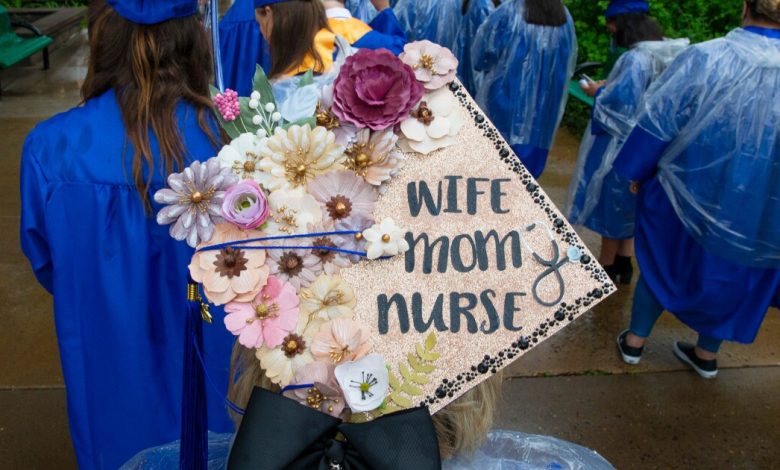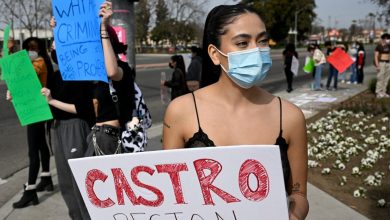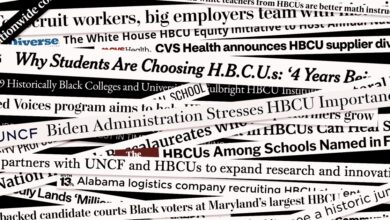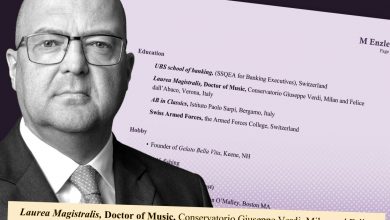Half of U.S. Adults Without Degrees Want More Education

[ad_1]
Nearly half of American adults without college degrees think they need additional education to advance their careers — and just over half said they will likely pursue that education in the next five years.
That’s according to a new survey of 350,000 adults from Strada Education Network and Gallup. The level of interest in higher education is a potential dose of good news for colleges amid grim enrollment declines over the past few years.
But the adults hoping to seek more education reported that they were most likely to do so from employers, instead of colleges or universities. What’s more, that interest varied greatly by age, location, and race. People between the ages of 18 and 24, people of color, and urban residents reported the greatest need for more learning and the greatest likelihood to enroll.
About 60 percent of American adults don’t have a college degree. Here are some key data points on adults without degrees from the survey:
- 46 percent said they needed additional education to advance in their careers.
- 53 percent said they were likely or very likely to enroll in some type of course or training in the next five years.
- 44 percent said a “guaranteed” job placement or pay raise would greatly increase their likelihood of enrolling; 44 percent said the same about free community-college tuition.
As colleges try to reverse enrollment declines exacerbated by the pandemic, leaders are experimenting with ways to recruit and retain more students — including adult learners who never completed, or even started, their college degrees. The growing gap between job openings and the pool of qualified workers to fill them has pushed policy makers and employers to also get involved, the report said.
However, the authors wrote, “too many policy makers and practitioners have paid too little attention to what actually motivates individuals to pursue additional education.”
Survey respondents said that guaranteed career boosts, affordable options, and flexibility would increase their likelihood of enrolling in more education.
Forty-four percent said guaranteed employment outcomes, like a raise or job offering, and free community-college tuition would help. They also cited courses that fit into their schedules, online learning opportunities, and access to child care as motivating factors.
“Education is a means to an end for adults without degrees, and the most powerful solutions will ensure the end results of positive career outcomes are a point of focus from the very start,” the report said. “They need programs that are within reach for their budget and their busy lives; and to make it worth the time and money, they have to see a positive employment outcome at the end.”
Adults who attended some college but did not finish their degrees are often the main target of college-completion efforts. But in the survey, they were significantly less likely to say they felt like further education was necessary. Only 44 percent reported needing more education to boost their careers, compared to 59 percent of adults without a high-school diploma or GED.
On the other hand, adults with some college and no degree were among the most likely to say they would enroll in a traditional university or community-college setting. In contrast, one-third of all adults without degrees said they would seek additional education from their employers first.
Younger adults reported both a greater need for and a higher likelihood to pursue more education. While people of color were more likely to see postsecondary learning as necessary — with 65 percent of Hispanic respondents saying they needed more education, compared to 36 percent of white respondents — their reported likelihood of actually enrolling varied by racial and ethnic groups, with Asian respondents reporting the highest likelihood of pursuing further education.
Location also played a role. A 10 percentage-point gap separated the perceived educational needs of urban and rural respondents. In California, for example, 57 percent of workers without a college degree felt they needed additional education to advance in their careers, while in North Dakota, only 33 percent said the same.
Authors of the report attributed this difference to local labor market needs. “States where a higher percent of jobs require a bachelor’s degree also see higher perceived need for additional education,” they wrote.
Despite the demographic variations, the data serve a clear purpose when it comes to college completion efforts, the report said. “Career value, cost value, and access are the keys to motivating Americans to pursue additional education — and comprehensive solutions should leverage all three.”
[ad_2]
Source link






